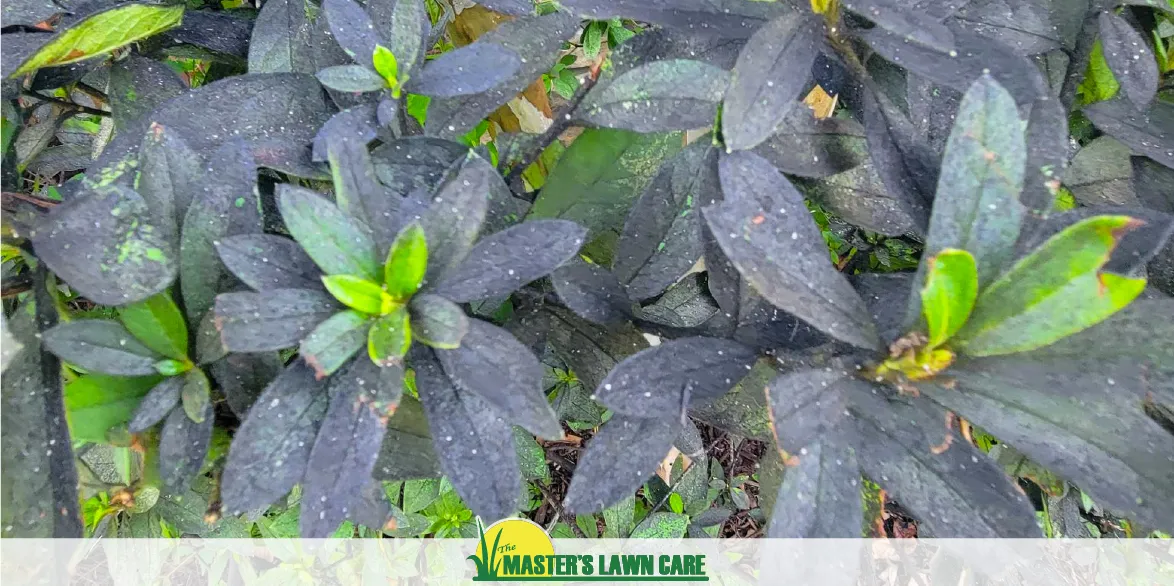Short on time?
Watch our YouTube video that explains this yard pest!
Have you noticed black sooty mold on your landscape plants?
That powdery, black residue on your landscape plants probably isn't doing them any harm, but the same can't be said for the pests that cause it. The black coating is called sooty mold, and it's a sign your plants are under attack!
Insects, such as aphids and scales, are attracted to plants and will suck the leaves for plant juices. As they digest the plant nutrients, they excrete a very sugary substance that we call honeydew.
The first sign that you have a sucking insect problem will be very shiny or oily-looking leaves. These leaves will feel sticky from the sugary honeydew. You will usually notice ants trailing up the tree to get the sugar, and you might notice a lot of wasps and bees flying around the tree also. If you park your car under the tree, you will also see the honeydew dripping on your hood.
The sugar not only attracts other insects, but it also attracts sooty mold, which can live and grow on the honeydew. You might see a white fence under the tree or plant turn black, as well as patio furniture or even your car if honeydew is falling on them!
Although it looks unsightly, sooty mold isn't harmful to human health. If you touch or rub leaves, stems, or bark that has that characteristic black coating, you're left with dark smudges on your fingers.
You'll probably also feel the sticky honeydew that the mold is growing on. But there's nothing to worry about. Just wash your hands with warm water and soap to remove the black marks.
It is easier to prevent sooty mold than to control it, and that means starting early.
Sooty mold is really an insect problem, and if you control the insects, you will not have sooty mold. You have heard that “an ounce of prevention is worth a pound of cure.” It applies here. The scale pest can be treated with a contact or systemic insecticide as well as organic treatments.
To reduce insecticide use, our team uses horticultural oils in the cooler months to control this common landscape pest. In the warmer months, the best method is systemic insecticides that are soaked into the plant and kill the scale as they feast on its nutrients.


